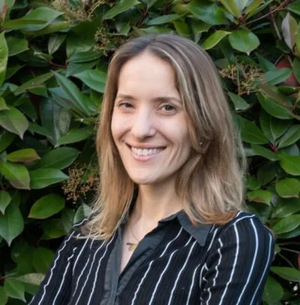Marta Kovatcheva

Director of the research program "Cellular Plasticity and Aging" at IFOM – AIRC Institute of Molecular Oncology
Participate in:
International Award "Le Tecnovisionarie®" 2025Marta Kovatcheva was born in Sofia, Bulgaria, and grew up in Toronto, Canada. She earned her degree in Sciences from the University of Toronto, specializing in Molecular Genetics. Driven by a passion for applying research to unmet medical needs and a particular interest in cancer biology, Marta moved to New York to pursue her PhD at the Memorial Sloan Kettering Cancer Center, under the supervision of Dr. Andrew Koi. For her postdoctoral work, Marta then moved to Barcelona, Spain, where she trained with Dr. Manuel Serrano, a world-renowned scientist in the field of tumor suppression. Her work focused on a topic called "cellular senescence" – a state that our cells acquire as they age and become dysfunctional, with negative effects on human health.
In 2024, Marta moved to Milan, Italy, to start her own research group – the Cellular Plasticity and Aging Laboratory – at IFOM – FIRC Institute of Molecular Oncology. Her research focuses on understanding why our body becomes much more susceptible to cancer and other diseases as we age, how senescent cells may contribute to tumorigenesis and disease progression, and how therapies targeting senescence can be made widely accessible and introduced into therapeutic practice.
Marta's work has led to several patents related to biomarkers capable of assessing the efficacy of certain anti-cancer drugs, as well as screening platforms for the study of cellular senescence; her discoveries have guided the design of new clinical studies currently underway. In 2024, Marta received the prestigious "Rising Star Award" from the EACR – Mark Foundation – Pezcoller Foundation, which recognizes exceptional ideas from emerging young cancer biologists. Marta has a strong passion for communication and scientific outreach. She has given dozens of scientific lectures in more than 10 countries and actively participates in education and scientific enrichment programs. She is currently the President of the Committee for Diversity, Equity, and Inclusion of the International Cell Senescence Association. She is committed to training and mentoring the next generation of scientists and promoting a more equitable and accessible science for all.